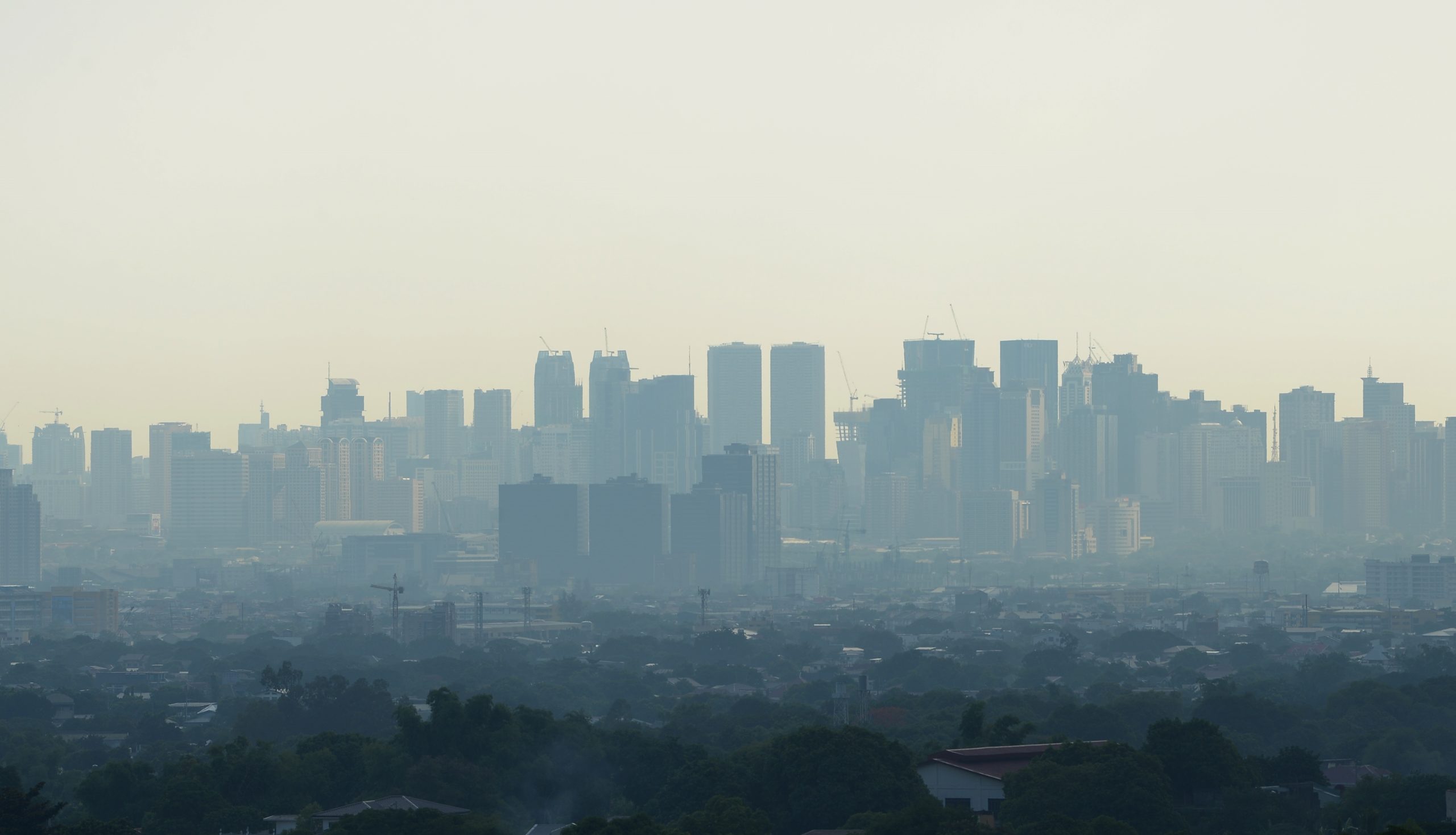
In this photo taken on June 23, 2019 shows smog covering buildings in Manila. (Photo by Ted ALJIBE / AFP)
MANILA, Philippines — Environmental scientists and advocates are calling for the government and the private sector to implement more aggressive climate resiliency interventions in the country to alleviate the economic impacts of climate change.
The Stratbase Albert del Rosario Institute (ADRi) last Tuesday conducted an online forum titled “Best Practices for a Proactive Approach to Climate Resiliency” where stakeholders virtually gathered to share and discuss the best practices to achieve a resilient community against climate impacts.
The forum was held in celebration of World Environment Day last June 5 and the National Disaster Resilience Month in July.
“Climate crisis is still, unfortunately, not a top-of-mind issue for many economies, including ours,” Carlos Primo David, ADRi Program Convenor and Trustee, and Convenor of the Philippine Business for Environmental Stewardship, said during the event.
“Our window to address climate change is 30 years or roughly one generation. Not acting on climate change during this period may prove to be devastating for the planet,” he added.
David said that since the current generation is starting to occupy the leadership roles of society, “it is up to us then to recognize this threat and seriously address the climate crisis.”
Meanwhile, Nazrin Camille Castro, branch manager of Climate Reality Project Philippines, noted that the impacts of climate change “are already here and fast increasing.”
She said that government and business operations should have systems in place to respond and adapt to business continuity challenges that could be caused by climate-related disasters.
For his part, Philippine Disaster Resilience Foundation president Rene Meily emphasized that local government units (LGUs) along with non-government organizations, the health sector, and international agencies should collaborate to address the situation.
“If we can all work together, in government, civil society, LGUs, the health sector, and the different NGOs and different international agencies, we can all work together to start to make this a more pleasant place to live in, a safer place to live in, by helping mitigate the effects of climate change to pollution and so on, it will help make a better world, not so much for ourselves but for our children,” he said.
Stratbase ADRi President Prof. Dindo Manhit also said that communities “will constantly remain vulnerable to shocks if immediate mitigation and adaptation of sustainable and best practices are not widely implemented.”
Executive Director of Project NOAH Dr. Mahar Lagmay, meanwhile, stressed that it is essential for early warning systems to be both data-driven and people-centered to save more lives and livelihoods.
“It is about capitalizing on all the expertise and all of the efforts, the willingness, the volunteerism, the efforts of everybody,” he said. “If we do that, we build a people-centered early warning system that ensures our survival.”
Glenn Banaguas, president of the Environmental and Climate Change Research Institute, agreed with this point.
“If you really want to attain resiliency and sustainability, we have to have a change in focus from climate-centered to decision-centered, focusing on people, communities, and outcomes,” he said. Sofia Vertucio, Inquirer trainee
RELATED STORIES:
PH joins the climate change fight
Pasig River world’s top dumper of plastics in the ocean, says study